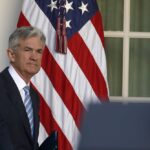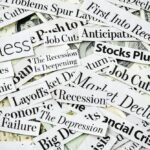As Nigeria marks its 62nd independence anniversary, many will be checking to see if there is indeed any reason for celebrations.
Reasons for pessimism are not hard to find. Major statistics for the economy, security and human development paint a picture of a country in despair.
Time was when the naira, Nigeria’s currency, was stronger than the American dollar. Those were the days Nigerians didn’t need a visa to travel to countries like the UK. And they were also the days when Nigeria’s democracy was strong.
They were the times when Nigerian universities were highly regarded globally and scholars looked forward to sabbaticals. And when University College Hospital in Ibadan was among the best hospitals in all the Commonwealth nations.
In the 1980s the Nigerian immunisation coverage was above 80% – an indication of an effective healthcare system.
Today, the story is not that inspiring.
To return to its glory days, Nigeria must deepen its democracy and invest more in education and empowerment of its largely youthful population. The most valuable resource the country has is its people – not petroleum or any other natural resources. This would in turn have an impact on the state of security in the country while ensuring an enabling environment for sustainable development.
At The Conversation Africa, academic experts have been looking at these issues and proffering solutions. Here are five essential reads on the Nigerian situation.
Democracy and development
Nigeria has been a stable democracy since 1999. Yet it has not yet attained the kind of economic development people imagined would be forthcoming. The country faces acute poverty, youth unemployment, institutional corruption and widespread insecurity. Political expert Abiodun Fatai, from Lagos State University, identifies poor quality leadership and weak institutions as two issues that have stopped Nigeria from translating its democratic dividend into better economic outcomes.
Read more:
Nigeria ticks some boxes as a democracy. Why this hasn’t translated into a better life for most
How to get functional universities and graduates
To solve its human capital development challenge, Nigeria needs to fix its universities. Strikes have plagued Nigeria’s university system for the better part of three decades, beginning in 1988. At the heart of the problem are disputes over arrears of unpaid salaries and repeated failed promises of the government to fund public universities. Seun Kolade, an associate professor in strategic management at De Montfort University, says to fix the problem, three fundamental areas need to be addressed: funding, revamping the curriculum and generating income.
Read more:
Nigeria’s universities can find funds and produce job creators: here’s how
The youthful advantage
Indeed, the need to fix education and ensure that Nigeria’s youthful population is employable cannot be over emphasised. The country’s population was estimated at 206 million in 2020 and 70% were under the age of 30. Akanni Ibukun Akinyemi, professor of demography and social statistics, and Jacob Wale Mobolaji, a demographer, statistician and public health researcher, both at the Obafemi Awolowo University, describe how the size and youthfulness of Nigeria’s population offer great potential to expand the country’s capacity as the regional economic hub of Africa and globally.
Read more:
Nigeria’s large, youthful population could be an asset or a burden
Dwindling oil revenue
More than ever before, Nigeria needs to invest in its human resources as its reliance on oil revenue becomes increasingly tenuous. Nigeria’s oil output recently hit its lowest since 1990 as its crude oil production fell below 1 million barrels per day. Angola and Libya have overtaken Nigeria as Africa’s largest crude oil producers. Petroleum professor Omowumi Iledare, at the University of Cape Coast, explains what’s happening.
Read more:
Nigeria is producing less and less oil. Here’s why
Meanwhile inflation bites …
Faced with rising inflation, the Nigerian Central Bank has been increasing interest rates. According to the apex bank, the interest rate was raised to reduce inflationary pressure, narrow the negative real interest rate margin, restore investor confidence and boost remittances. Stephen Onyeiwu, Andrew Wells Robertson Professor of Economics, Allegheny College, is of the view that Nigeria shouldn’t assume that monetary policy will work in the country the way it works elsewhere.
Read more:
Nigeria has just hiked interest rates: why it’s the wrong recipe for curbing inflation










